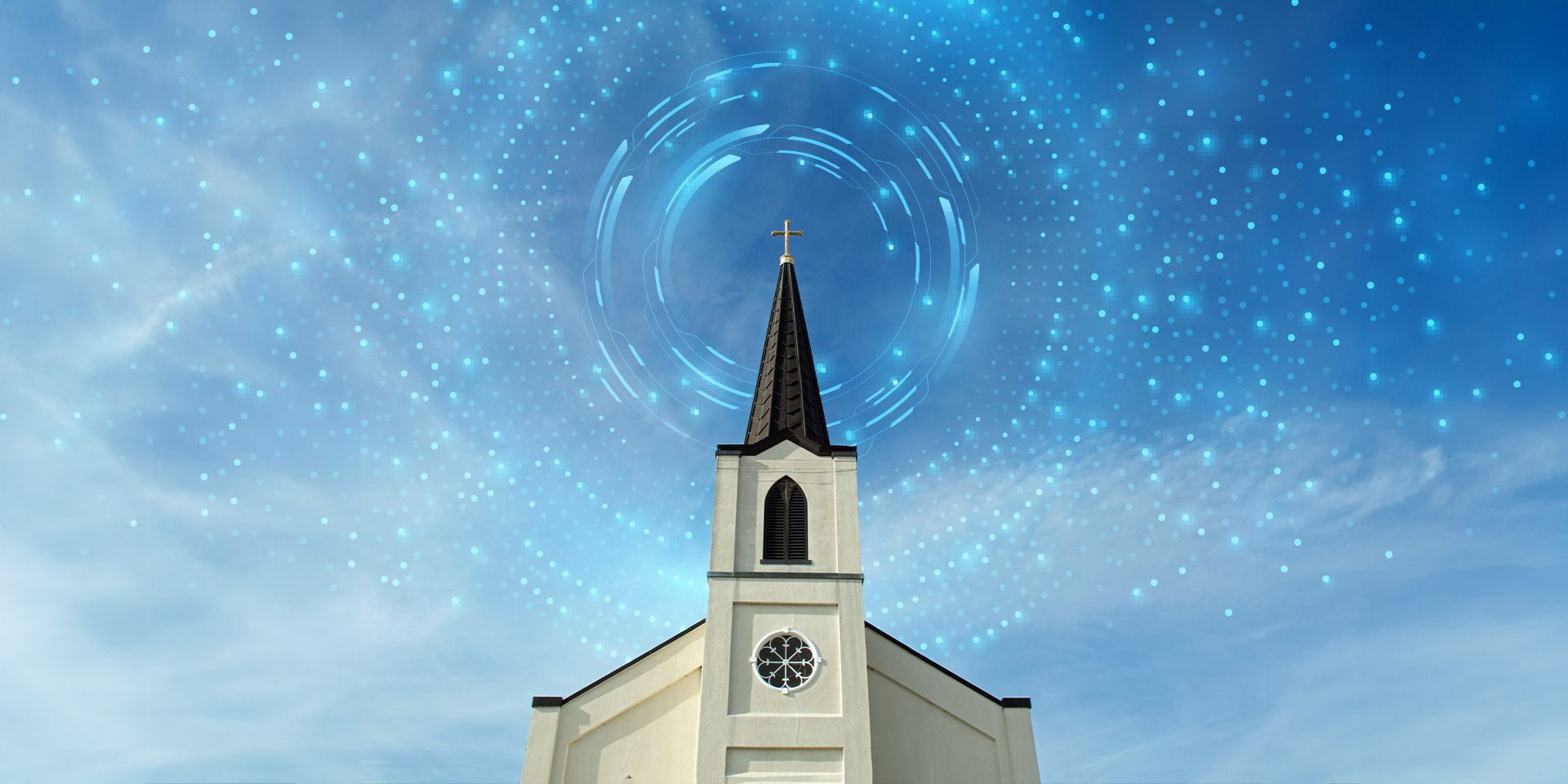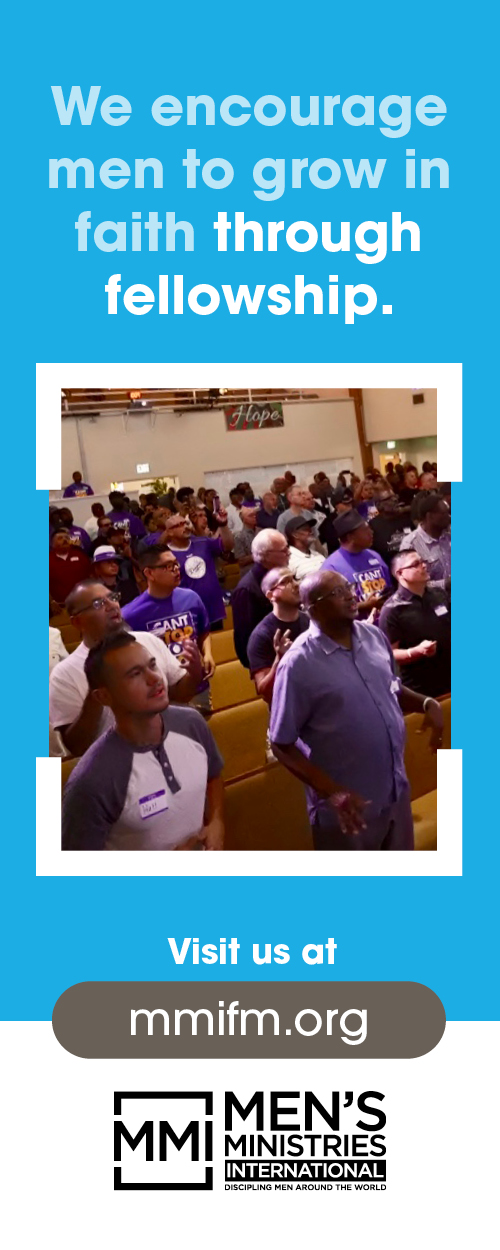By Kasey Martin
“And the Holy Spirit helps us in our weakness. For example, we don’t know what God wants us to pray for. But the Holy Spirit prays for us with groanings that cannot be expressed in words. And the Father who knows all hearts knows what the Spirit is saying, for the Spirit pleads for us believers in harmony with God’s own will” (Romans 8:26–27).
I’m going to be completely transparent with you. I have a tendency to disagree with Christians sometimes — specifically those who act like any problem that comes their way ought to get out of their way. Here’s the thing though. If Jesus is who He says He is, why would we expect life, the universe, and everything to look or act any different than it currently does?
_
“Jesus says in this world we will have trouble — but He has overcome the world.”
_
Church people speak of the “promises” (or “declaring” certain things) of God quite a bit. We name them, pray them, and put them on plaques and knickknacks. One promise I’ve never seen emblazoned/adorning anything are the words Jesus spoke in John 16:33, “Here on earth you will have many trials and sorrows. But take heart, because I have overcome the world.” He doesn’t say we might, or that it’s been known to happen a time or two, mostly to people who really deserved it. Jesus says in this world we will have trouble — but He has overcome the world.
I’m going to assume many of you are familiar with the book of Romans, especially Chapter 7. It tends to be a chapter in the Bible that many Christians can relate to because the Apostle Paul is very transparent regarding his own personal struggle to live out a life worthy of God. Some may even adopt verse 15 as their life verse, if that’s not you, I daresay you’re still familiar with the verse. It’s where Paul states, “I don’t really understand myself, for I want to do what is right, but I don’t do it. Instead, I do what I hate.” Resonate with anyone who has spent any time trying to live a “Christian” life?
What about these words? “There is another power within me that is at war with my mind. This power makes me a slave to the sin that is still within me. Oh, what a miserable person I am! Who will free me from this life that is dominated by sin and death?”
Now, to be fair, scholars debate whether Paul is speaking from the point of view of a Jewish individual prior to his meeting Jesus on the Damascus road at this point, or if this was part of his experience after coming to Jesus, but I think many of us can admit to a similar experience at times during our lives as followers of Jesus. Here’s the more important thing though; Paul’s thought doesn’t stop there. He goes on to say this just a bit later, “Thank God! The answer is Jesus Christ our Lord. So you see how it is: In my mind I really want to obey God’s law, but because of my sinful nature (or flesh) I am a slave to sin. So now there is no condemnation for those who belong to Christ Jesus. And because you belong to him, the power of the life-giving Spirit has freed you from the power of sin that leads to death” (7:25–8:2).
_
“We are not holy because of how we live; rather we tend to live holy lives as we rely on the holiness of God actively living in and through us.”
_
Holy Lives Relying on God’s Holiness
I think the point Paul is trying to make is that too often we take our eyes off of Jesus and try to live a “holy” life in our own power — and this simply doesn’t work. We are not holy because of how we live; rather we tend to live holy lives as we rely on the holiness of God actively living in and through us.
In Romans 8:11, Paul reminds us of a life-changing truth, one which I’m not sure just how much any of us really grasp fully. Paul writes, “The Spirit of God, who raised Jesus from the dead, lives in you. And just as God raised Christ Jesus from the dead, He will give life to your mortal bodies by this same Spirit living within you.”
Let me just repeat that, because it bears repeating: The same Spirit that raised Jesus from the dead now lives in you! The Holy Spirit of God lives in you if you have turned to Jesus and come to rest in Him. He lives in you, in me. He lives in us (His church), the One who brooded over the very waters of creation in Genesis 1, the one who brought Jesus back to life — not in a resuscitated body, but in a new glorified body after Jesus had conquered sin, death, and the accuser.
He lives in us. Begin to contemplate that. Attempt to grasp that truth, and your life will never be the same!
_
“Do you know who your true self is?”
_
Living Into Our New, True Selves
Because of that truth, we are new creations, and we can live into our true selves. The question is: Do you know who your true self is?
It is Jesus in you, the hope of glory. I used to (and still do at times, if I’m honest) really struggle with this life of a Jesus-follower, because too often I see it as one in which I have turned to Jesus, but then am on my own to improve my behaviors. Jesus has saved and accepted me, but there is still all this stuff I’m dealing with. Sure He is willing to help, but ultimately the onus is on me to do something, to change something … sometimes a lot of somethings. In this frame of mind, I feel like I am “faking it,” that I’m not being the real me. It feels like something is off, like I’m missing something.
Honestly, it can feel like Romans 7:15 was the only reality I’ll ever know. Maybe that resonates with you. If it does, I just want to encourage you to turn the page to Romans 8 and begin to walk in life, hope, and victory, because now “there is no condemnation for those who belong to Christ Jesus.”
Sharing Christ’s Suffering
The more I ponder Romans 8 and that truth — the power that raised Jesus from the dead now lives in me — the more I begin to realize that that is the real me, more real than anything else I’ll ever know. Jesus is the normative human — He is what all of us were meant to be like (no not male, not Jewish, not a carpenter — though those are all fine things). His character, His actions, His motivations, His holiness — that’s normal -humanity. That’s real. What is fake is all the sinful morass we all too easily get bogged down by.
But Paul does not stop there. Living out this “real life” in Christ, must necessarily include something else we would rather it not. Romans 8:17 goes on to say this, “But if we are to share His glory, we must also share His suffering.”
_
“To remain in the state of struggling with sin is to suffer. It’s to suffer in a state we were never meant to endure.”
_
Wait, come again? Suffering, suffering, you say? I’d rather not. I mean I’m thankful to Jesus for His work on the cross and all that, but can’t I just have that and not the suffering? Is there a Christianity “lite” I can sign up for somewhere? Afraid not. This is the turn in the Christian life that Paul is mapping out for us here in Romans — as we’ve traveled with him through Chapter 7 and into 8, we see that it is common to struggle with sin, and now the next step is to embrace the very real potential of suffering.
“In this world you will have trouble,” not might, no, we will have trouble, Jesus says (John 16:33 NIV). But He has overcome the world, and what’s more, the Overcomer now dwells in us and calls us His child. Becoming like Jesus, to be more fully formed into His image — which is the goal of life — necessarily includes that we will endure suffering.
Now at this point, you can say, “Hey, I think I’ll just stick with the whole struggling with sin thing. It’s not ideal, sure, but it sounds better than suffering.”
Sorry, you can’t have one without the other. To remain in the state of struggling with sin is to suffer. It’s to suffer in a state we were never meant to endure. Instead to realize, to wake up to who and what we are in Christ — while it does include the very real possibility of suffering for the sake of Jesus — makes overcoming those sins that so easily entangle us much less of a burden. Hardships, difficulties, and sufferings are not to be expected to simply “get out of our way.” As Christians, we are to press into them. In fact, we proceed, to quote C.S. Lewis, “further up and further in” to the life of Christ.
Unless otherwise indicated, Scripture quotations in this article are taken from the Holy Bible, New Living Translation, copyright © 1996, 2004, 2015 by Tyndale House Foundation. Used by permission of Tyndale House Publishers, Inc., Carol Stream, Illinois 60188. All rights reserved.
+

Kasey Martin is the associate pastor of spiritual formation at The Lamb’s Fellowship in Lake Elsinore, California, after serving in a variety of ministry roles in Kentucky, Washington, Idaho and other areas of California. While attending Mt. San Jacinto College, he came to an intellectual conversion and placed his faith in Jesus. The heart conversion took a little bit longer, and God used a diagnosis of clinical depression to initiate a relationship based on love that would alter things entirely. After graduating from Mt. San Jacinto, he also earned degrees from Biola University and Asbury Theological Seminary.
Great Writing + Discipleship Materials
RELATED ARTICLES











